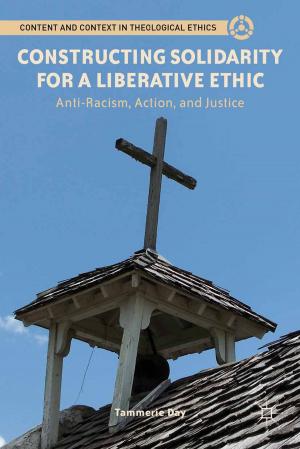Brazil on the Global Stage
Power, Ideas, and the Liberal International Order
Nonfiction, Social & Cultural Studies, Political Science, International, International Relations, Social Science| Author: | ISBN: | 9781137491657 | |
| Publisher: | Palgrave Macmillan US | Publication: | April 15, 2015 |
| Imprint: | Palgrave Macmillan | Language: | English |
| Author: | |
| ISBN: | 9781137491657 |
| Publisher: | Palgrave Macmillan US |
| Publication: | April 15, 2015 |
| Imprint: | Palgrave Macmillan |
| Language: | English |
In the past generation, Brazil has risen to become the seventh largest economy and fourth largest democracy in the world. Yet its rise challenges the conventional wisdom that capitalist democracies will necessarily converge to become faithful adherents of a US-led global liberal order. Indeed, Brazil demonstrates that middle powers, even those of a deeply democratic bent, may differ in their views of what democracy means on the global stage and how international relations should be conducted among sovereign nations. This volume explores Brazil's postures on specific aspects of foreign relations, including trade, foreign and environmental policy, humanitarian intervention, nuclear proliferation and South-South relations, among other topics. The authors argue from a variety of perspectives that, even as Brazil seeks greater integration and recognition, it also brings challenges to the status quo that are emblematic of the tensions accompanying the rise to prominence of a number of middle powers in an increasingly multipolar world system.
In the past generation, Brazil has risen to become the seventh largest economy and fourth largest democracy in the world. Yet its rise challenges the conventional wisdom that capitalist democracies will necessarily converge to become faithful adherents of a US-led global liberal order. Indeed, Brazil demonstrates that middle powers, even those of a deeply democratic bent, may differ in their views of what democracy means on the global stage and how international relations should be conducted among sovereign nations. This volume explores Brazil's postures on specific aspects of foreign relations, including trade, foreign and environmental policy, humanitarian intervention, nuclear proliferation and South-South relations, among other topics. The authors argue from a variety of perspectives that, even as Brazil seeks greater integration and recognition, it also brings challenges to the status quo that are emblematic of the tensions accompanying the rise to prominence of a number of middle powers in an increasingly multipolar world system.















